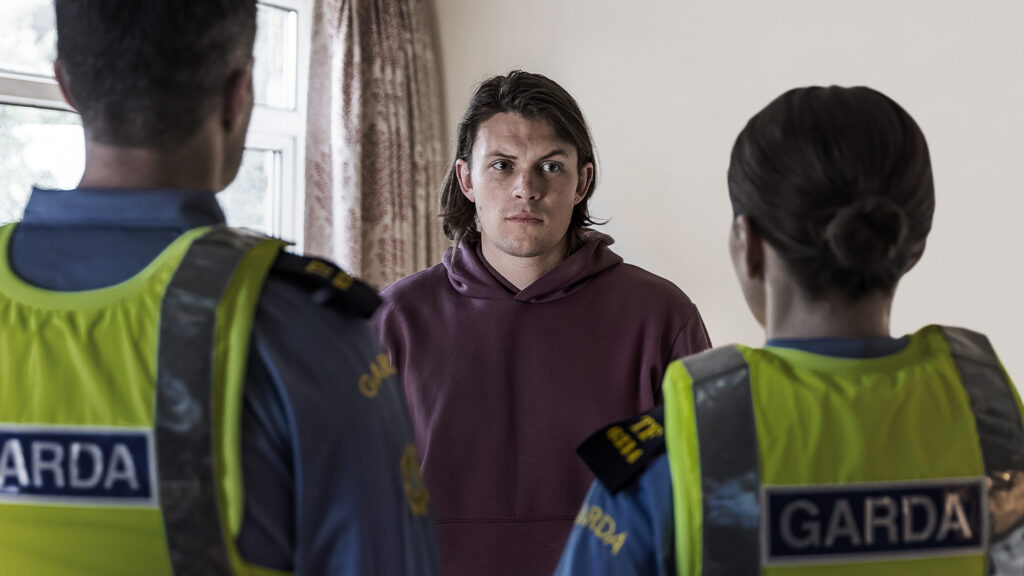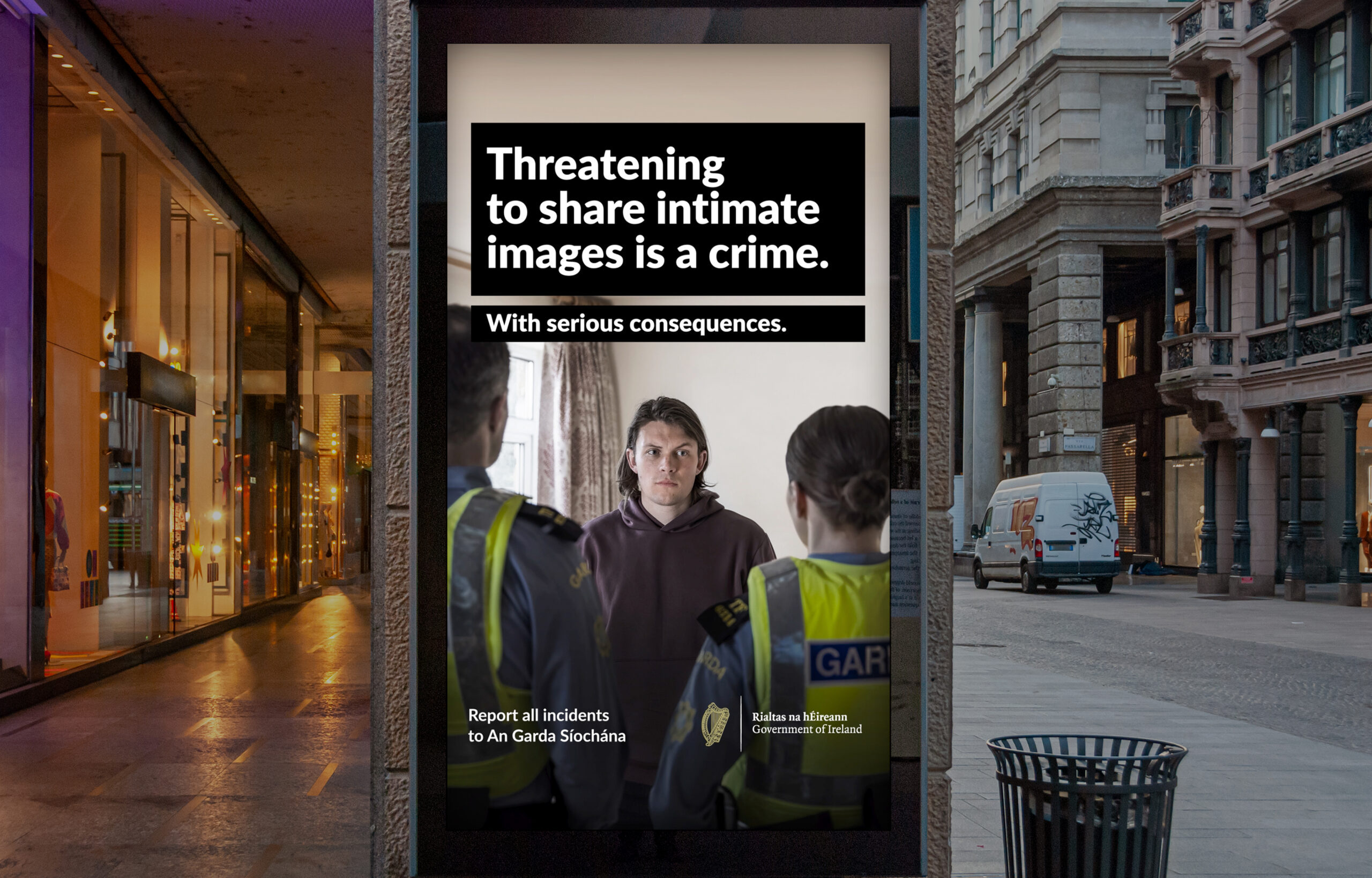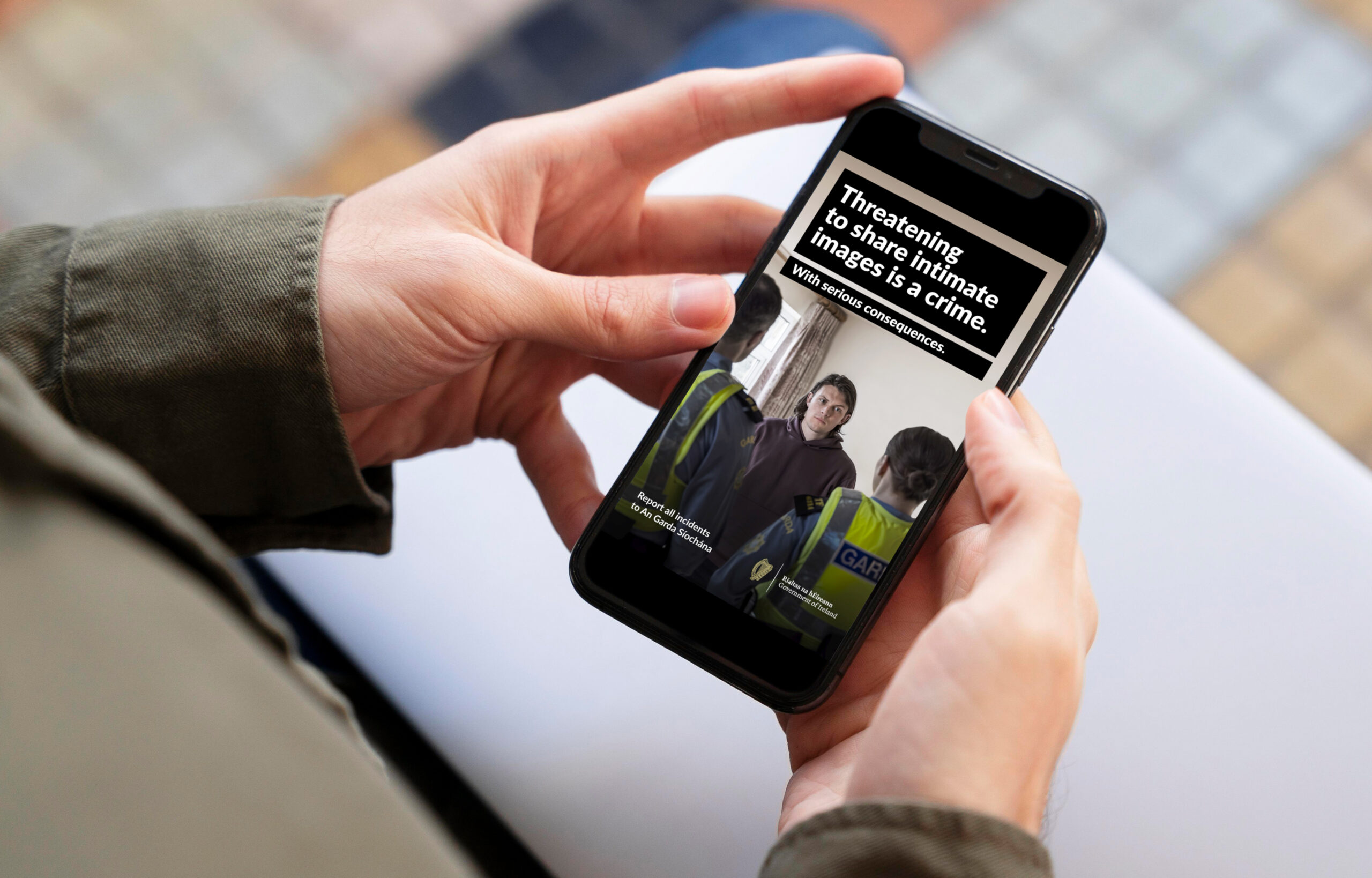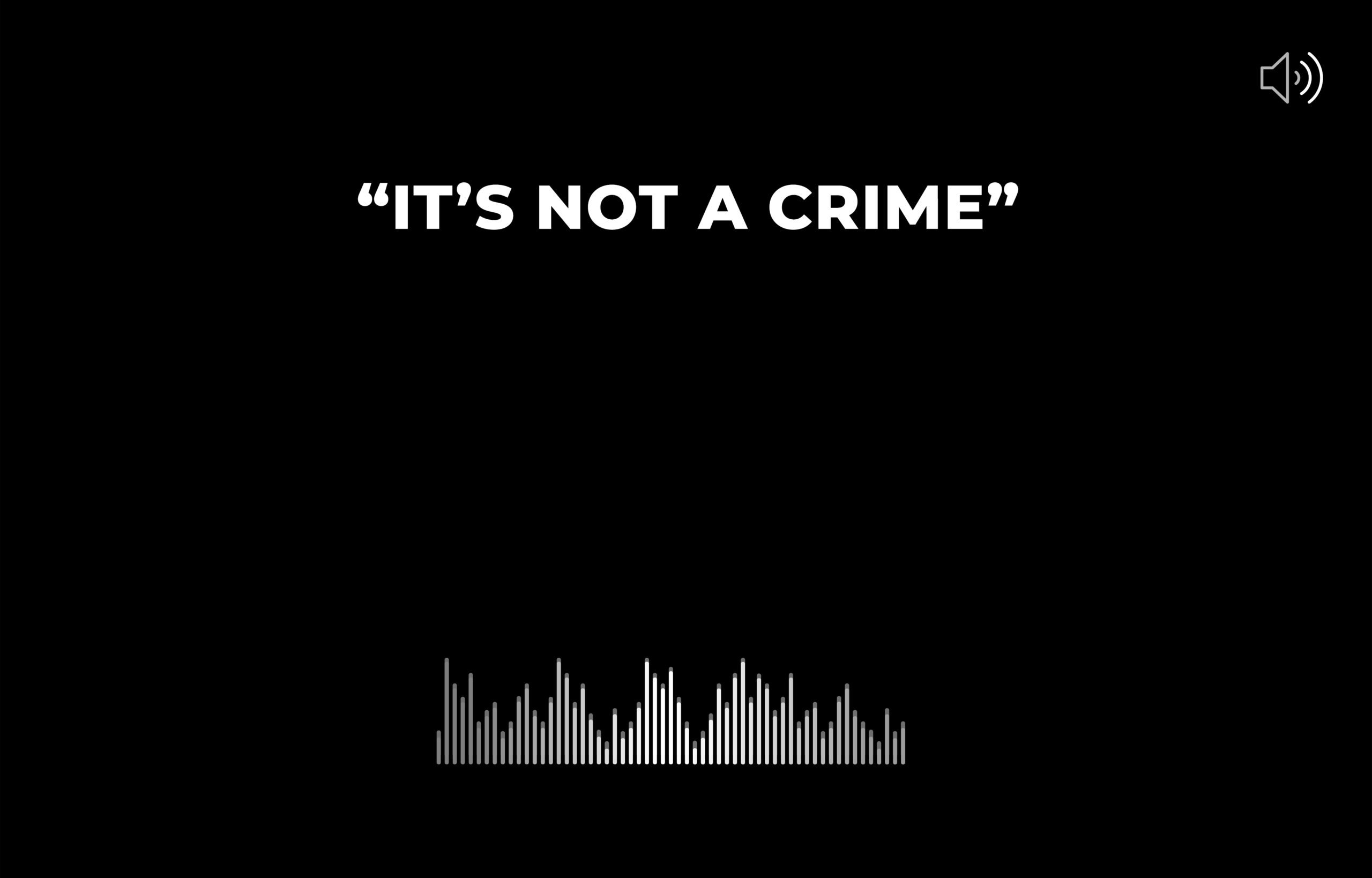RAISING AWARENESS OF THE LAWS AROUND INTIMATE IMAGERY.
5% of all adults claim to have had an intimate image of themselves shared to an online or social media site without consent, increasing to approximately 10% among 18-37s. 22% of adults claim to have shared an intimate image of themselves with someone else, with that figure rising to 43% amount 18-24s and 40% of 25-37s.
2021 saw the commencement of Coco’s Law – The Harassment, Harmful Communications and Related Offences 2020, to address these statistics. Following on from a successful initial awareness raising campaign, we were challenged with developing and furthering communications about the law. Our task was to educate around the fact that not only is it illegal to share intimate imagery without consent, it is illegal to threaten to share intimate imagery.
“This campaign is of paramount importance. It aims to change the perception that threatening to share intimate images in any circumstances is acceptable, but more importantly, to encourage the victims to report it if someone threatens to share their intimate images. They shouldn’t be embarrassed or fearful of coming forward. It has been a privilege for Javelin to be part of communicating such an important message.” Ken Ivory, Director, Javelin.
We created the ‘Serious Consequences’ campaign with the aim of ensuring victims are aware of the protections in place for them and highlighting the very real consequences for potential perpetrators. This is not a victimless crime and there are consequences.
The lead asset features a relatable young man, who has been confronted by the guards in his home. He is trying to explain away his actions and appears not to believe he is in the wrong: “I only said I’d do it”, he goes on to say – believing his simple threat is acceptable. In a frank and honest riposte, the Gardai inform him that it is a crime. The call to action empowers and encourages victims to reach out to An Garda Síochána to report the crime.
In addition, there is a video for social media which showcases a potential victim becoming empowered by the law through a text conversation. The campaign ran across TV, cinema, radio, digital outdoor, digital and social media.
claim to have had an intimate image of themselves
shared to an online or social media site without consent,
increasing to approximately 10% among 18-37s.
claim to have shared an intimate image of themselves
with someone else, with that figure rising to 43%
amount 18-24s and 40% of 25-37s.



